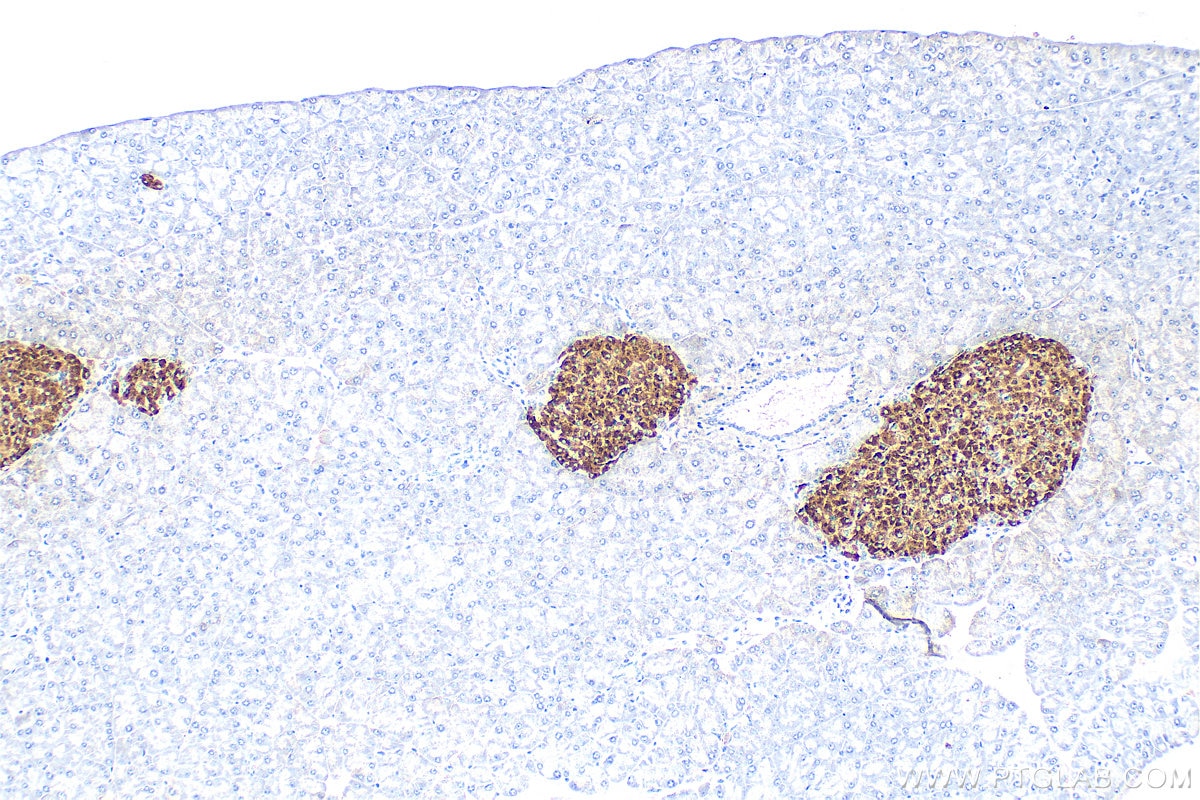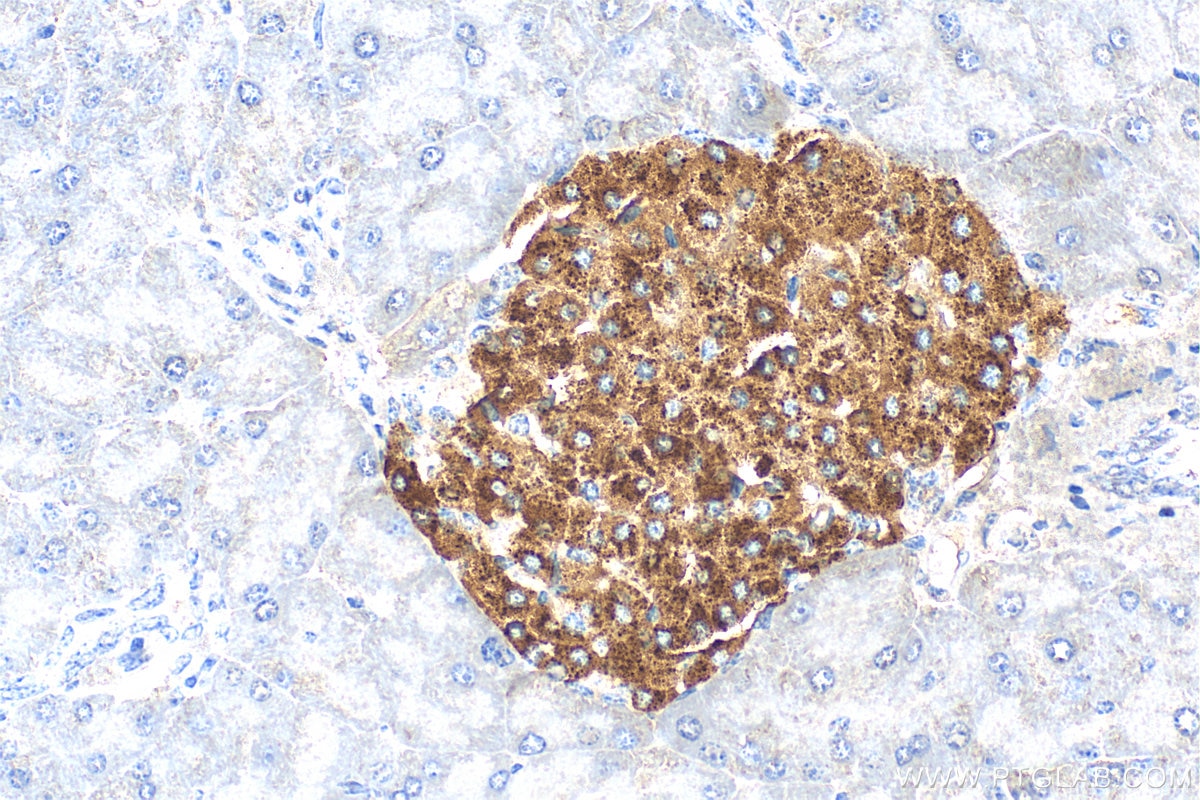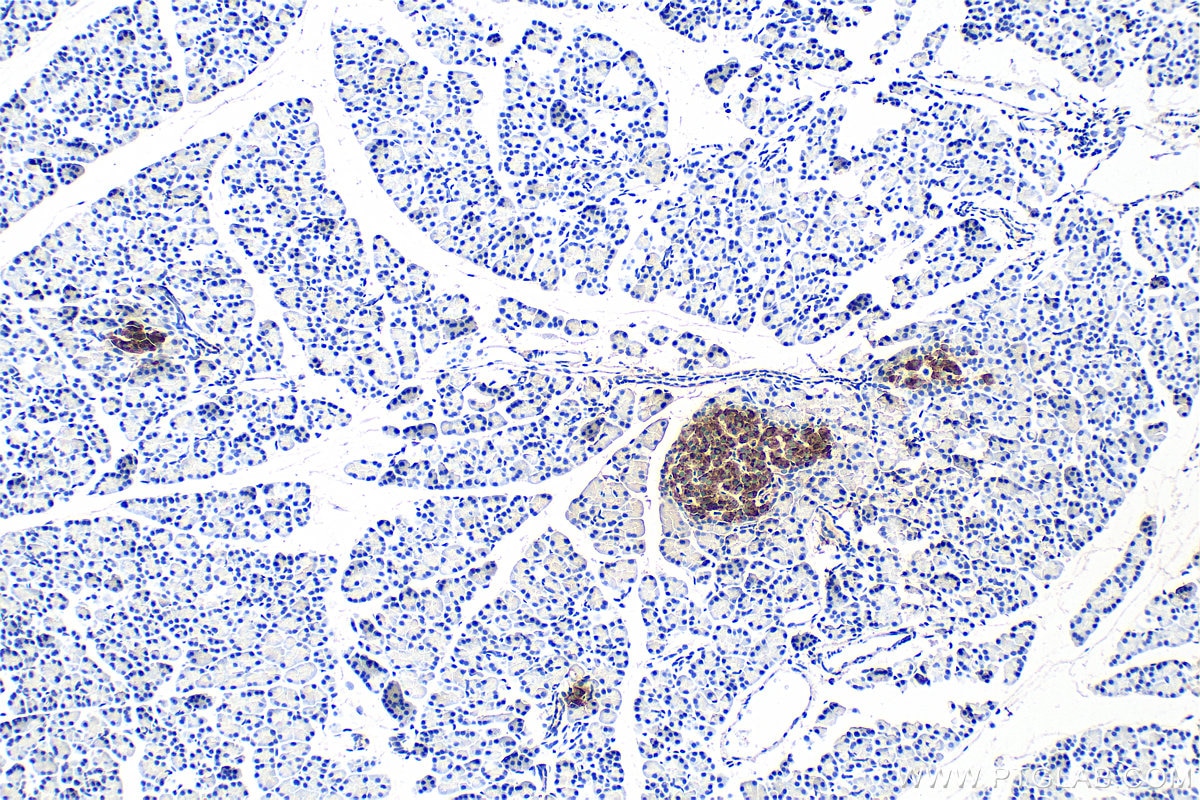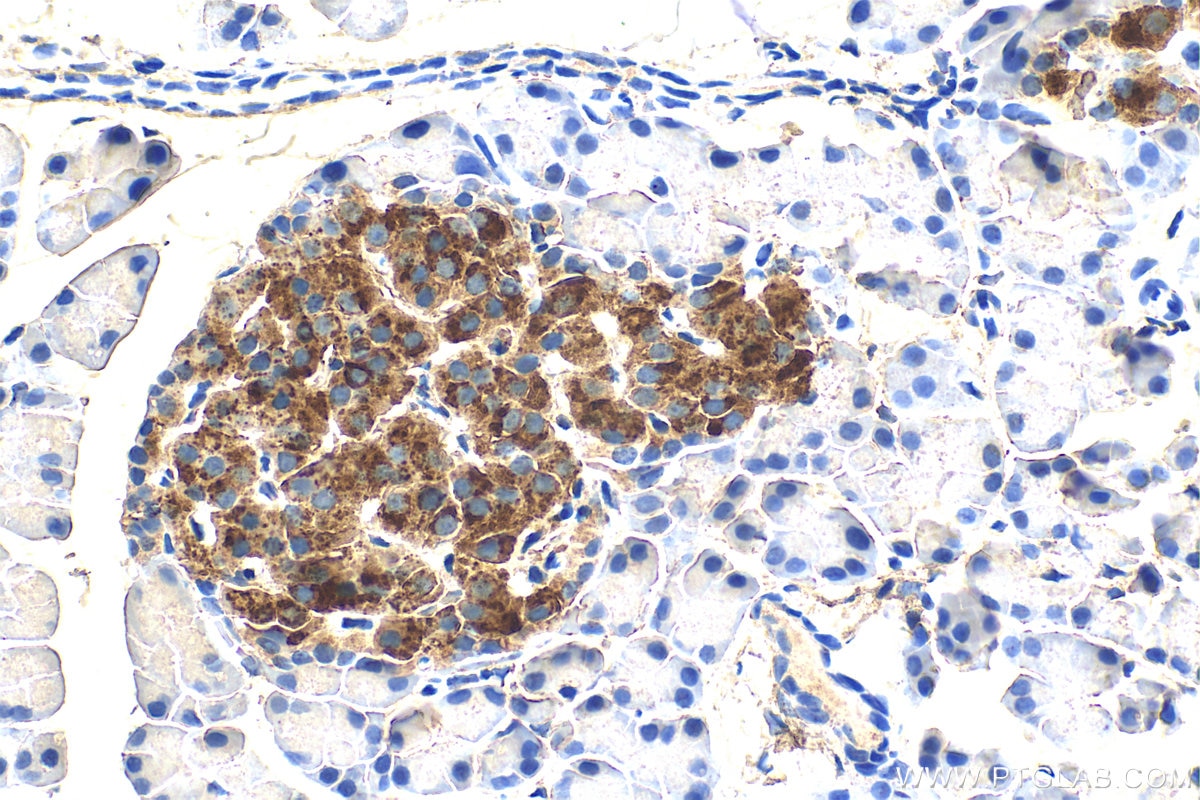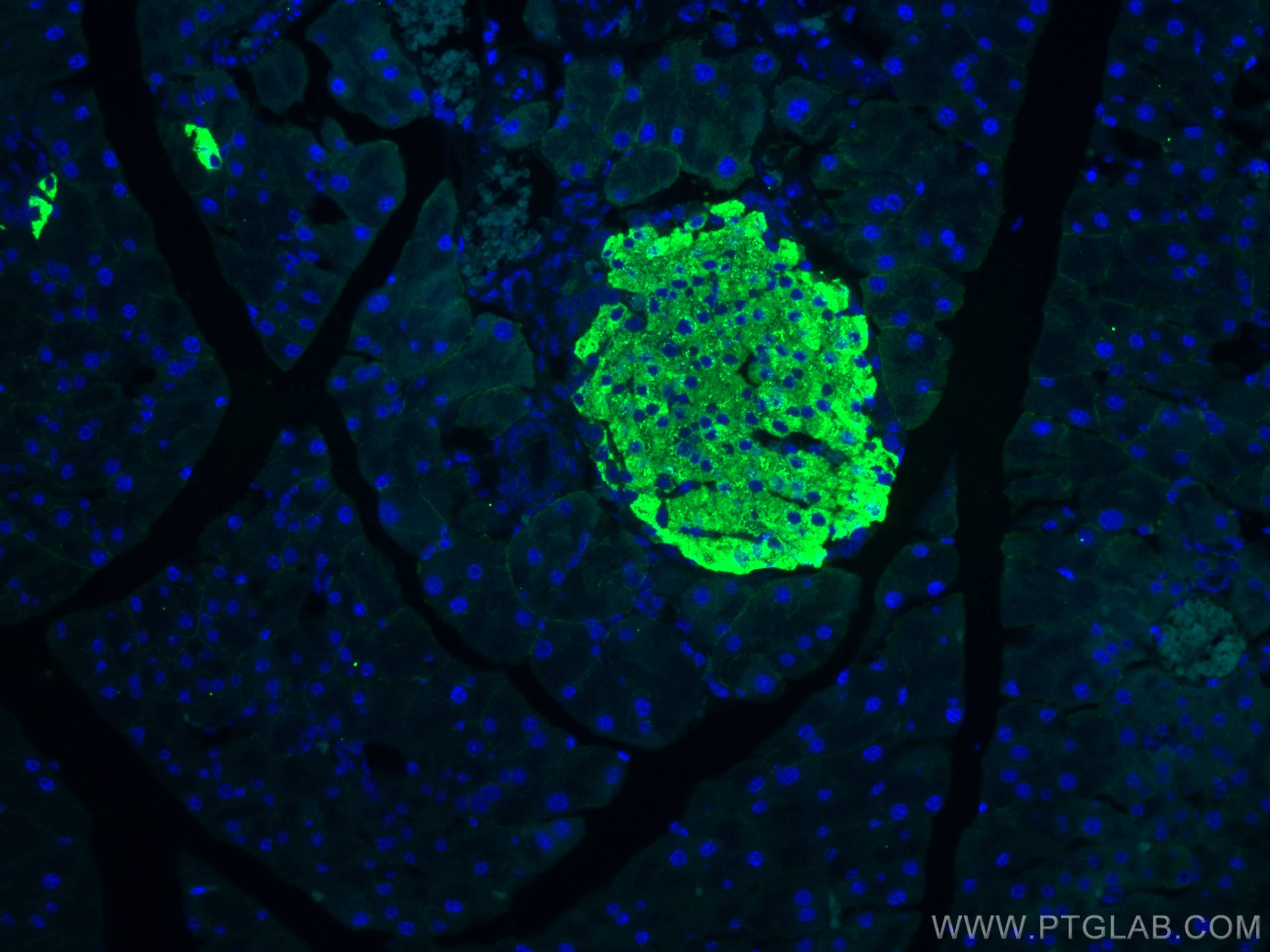Anticorps Monoclonal anti-Ins1
Ins1 Monoclonal Antibody for IHC, IF-P, ELISA
Hôte / Isotype
Mouse / IgG1
Réactivité testée
rat, souris
Applications
IHC, IF-P, ELISA
Conjugaison
Non conjugué
CloneNo.
1H2C11
N° de cat : 67668-1-Ig
Synonymes
Galerie de données de validation
Applications testées
| Résultats positifs en IHC | tissu pancréatique de souris, tissu pancréatique de rat il est suggéré de démasquer l'antigène avec un tampon de TE buffer pH 9.0; (*) À défaut, 'le démasquage de l'antigène peut être 'effectué avec un tampon citrate pH 6,0. |
| Résultats positifs en IF-P | tissu pancréatique de souris, |
Dilution recommandée
| Application | Dilution |
|---|---|
| Immunohistochimie (IHC) | IHC : 1:2500-1:10000 |
| Immunofluorescence (IF)-P | IF-P : 1:50-1:500 |
| It is recommended that this reagent should be titrated in each testing system to obtain optimal results. | |
| Sample-dependent, check data in validation data gallery | |
Applications publiées
| IF | See 1 publications below |
Informations sur le produit
67668-1-Ig cible Ins1 dans les applications de IHC, IF-P, ELISA et montre une réactivité avec des échantillons rat, souris
| Réactivité | rat, souris |
| Réactivité citée | souris |
| Hôte / Isotype | Mouse / IgG1 |
| Clonalité | Monoclonal |
| Type | Anticorps |
| Immunogène | Ins1 Protéine recombinante Ag29988 |
| Nom complet | insulin I |
| Masse moléculaire calculée | 12 kDa |
| Numéro d’acquisition GenBank | NM_008386 |
| Symbole du gène | Ins1 |
| Identification du gène (NCBI) | 16333 |
| Conjugaison | Non conjugué |
| Forme | Liquide |
| Méthode de purification | Purification par protéine G |
| Tampon de stockage | PBS with 0.02% sodium azide and 50% glycerol |
| Conditions de stockage | Stocker à -20°C. Stable pendant un an après l'expédition. L'aliquotage n'est pas nécessaire pour le stockage à -20oC Les 20ul contiennent 0,1% de BSA. |
Informations générales
insulin I is a peptide hormone that plays a vital role in the regulation of carbohydrate and lipid metabolism. The encoded precursor protein undergoes proteolytic cleavage to produce a disulfide-linked heterodimeric functional protein that is stored in secretory granules. An increase in blood glucose levels, among others, induces the release of insulin from the secretory granules. Mice deficient in the functional hormone encoded by this gene develop diabetes mellitus.
Protocole
| Product Specific Protocols | |
|---|---|
| IHC protocol for Ins1 antibody 67668-1-Ig | Download protocol |
| IF protocol for Ins1 antibody 67668-1-Ig | Download protocol |
| Standard Protocols | |
|---|---|
| Click here to view our Standard Protocols |
